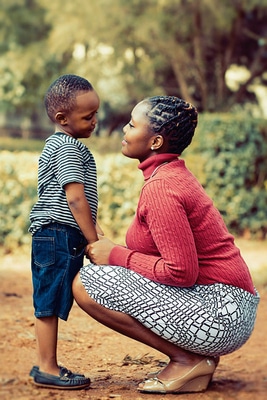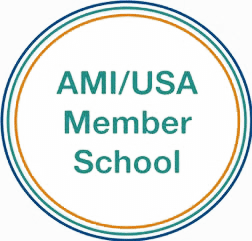
For most young children, change is a difficult but necessary part of life. Change is happening all around them all the time, from transitioning from grade to grade, to learning to roll with changes in daily schedules. While it is not easy for young children to transition with a changing environment, we know that the ability to adjust to change without anxiety and fear is critical to a child’s performance in school and their everyday life. The methods developed by Dr. Maria Montessori and practiced by Montessori programs have been proven to be beneficial to students learning to adjust to challenges brought about by change.
Part of the Montessori Philosophy is to help children develop confidence, autonomy, and problem-solving skills in an ever-changing setting. These skills are helpful for young children in their education and later in life. So, how can you help your child get acclimated to the Montessori environment so they can begin learning these useful skills? Here are five ways to help your child make the jump from daycare to a Montessori preschool program without uneasiness or dread.
Visiting the Classroom
When making the move from daycare, whether it was from another school or home, it is essential for your child to become familiar with their new school and its environment. Seeing the place they will be for the next school year takes the surprise out of the first day and allows children to feel comfortable when they arrive.
Arrange a visit with your new Montessori preschool, scheduling a time to take your child on a tour of the school premises. This provides them with an opportunity to meet with the teachers at their new school and observe the other children in the school as they are learning and having fun. When a child is familiar and comfortable with their new classroom environment, they are more likely to feel secure and confident in their learning.
Montessori Methods at Home
One sure-fire way to promote more independence, and therefore, the ability to navigate change is through your child’s routines and tasks at home. To familiarize your student with the method, philosophy, and routine at their new Montessori school, you can begin using the Montessori Method at home. The Montessori method is a process of educating the whole child that is based on self-directed action, collaborative play, and hands-on learning. In the Montessori classroom, children are encouraged to make innovative choices for themselves in their learning with trained teachers there to support and guide the process.
In order to make the transition to a Montessori preschool classroom an effortless one, parents can work on promoting independence at home, asking their children to make decisions for themselves, and taking on tasks that enhance their feeling of ability. The better the child can navigate their options, interests, and independence at home, the better they will perform in the Montessori environment.
Encouraging Self-Regulation
Dr. Maria Montessori believed that self-regulation is a vital competency that is at the core of all success in learning and life. Self-regulation in the Montessori classroom means being able to recognize and respond to emotions, manage impulses, make considerate and conscious choices, and set goals and achieve them. Young children in Montessori preschool classrooms are learning principles such as politeness and respect. They are also learning how to resolve conflicts, support others, and maintain a positive outlook.
These self-regulation skills aid preschool children in adjusting to new schools, new projects, and new people. Working with your child at home on how to regulate themselves and their emotions is a useful tool when building them up to make the transition to a Montessori preschool as it provides them with the tools to solve problems that may arise on their own.
Independence and Making Choices
Along with self-regulation, being able to make choices for themselves is a crucial part of being a student in a Montessori program. One of the fundamental goals of Montessori education is to prepare children to do things for themselves while providing several engrossing opportunities for them to do so. If your child was in a traditional daycare, they may have been made to participate in group lessons and group play more often than not. In a Montessori preschool, that is not always the case.
In Montessori classrooms, students create individual learning agendas, pacing themselves and introducing new challenges as they become ready to face them. Montessori preschool students are not asked to follow the same path or keep the same pace as their classmates. In this way, preschoolers can develop self-sufficiency and autonomy.
To prepare your child for an environment in which they are in control of their learning, offer them options at home. Ask them what they would like for a snack, or which book they would like to read at bedtime. By allowing them to make their own decisions at home, you are helping them to get familiar with the choices they will be given in their Montessori classroom.
Good Role Models
Last but certainly not least, parents can help their children transition to their Montessori preschool by providing their children with positive examples of how to navigate through change. By modeling a positive attitude about transitions, setbacks, and last-minute changes in your life, you can demonstrate to your child that there is no need for panic or frustration with change.
Parents and guardians are the first and foremost teachers for their children. Children at the preschool level are always watching and constantly learning from the adults in their life, especially when it comes to managing and addressing changes. When you can see change as an opportunity or welcome challenge, you can help your child see that it is not something to be afraid of.
The Montessori School of Newark offers preschool and kindergarten programs that inspire children to love learning. Our preschool and kindergarten programs are best suited for children aged 2 to 6 years. It is our aim to help your child reach their greatest potential. Visit our blog to learn more about our method or reach out today to begin your journey with The Montessori School of Newark.
